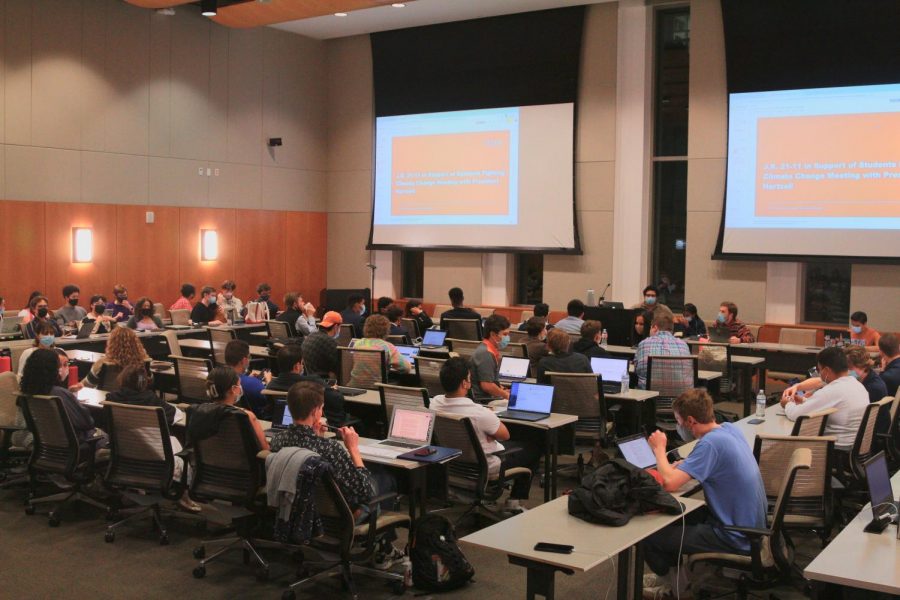UT report discusses challenges students with marginalized identities face in elected positions
April 8, 2022
Editor’s Note: This article first appeared in the April 5, 2022 flipbook.
Former Student Government members of marginalized identities discussed their challenges navigating public office during and after college in a recent report published by a UT assistant professor.
The report encouraged universities to provide safe spaces and tools to those with marginalized identities running for SG positions. Michael Goodman, author of the report and an assistant professor of practice, educational leadership and policy, spoke to current leaders in public office who participated in Student Government in college and who identify as people of color, women or LGBTQ+. He published the report, which said these individuals faced microaggressions, dismissiveness, discrimination and a lack of representation based on their identities, in the Journal of Campus Activities Practice and Scholarship’s spring issue.
“These individuals — women, people of color, women of color and queer people — experienced a lot of tension as it related to their identities in college but also after,” Goodman said.
Kevin Roberts, SG speaker of the assembly, said that although representatives are attempting to create these safe spaces, SG has not fully guaranteed there will be one.
Despite being elected 2022-23 student body vice president, public health sophomore Isabel Agbassi said she still feels uncomfortable in some situations because of her identity as a Black woman.
“I have had an experience where I was actually being gaslighted and strong-armed into doing something that I didn’t feel comfortable doing,” Agbassi said. “I had people who used their allyship to defend me when the situation arose. … We’re just at a place where reform is definitely needed.”
The current session, which began March 22, introduced a new diversity, equity and inclusion caucus to SG. Leaders within SG have begun efforts on intentional and consistent outreach to diverse identity groups on campus, Agbassi said.
“As a Black woman on campus, I feel like oftentimes outreach is very performative,” Agbassi said. “I don’t think Student Government is doing the best they can to truly be inclusive, and I think it’s harmed other people (and) made people uncomfortable. … I don’t think that should stand.”
Government junior Leland Murphy, student body president for the 2022-23 school year, said his executive board hopes to propose structural changes in addition to adding a Multicultural Engagement Center and a Gender and Sexuality Center representative.
Murphy and Agbassi’s platform included making reforms based on the recent LGBTQIA+ state of affairs report, which featured 48 recommendations to the University.
Goodman said SG members need to be conscious of how they support one another through administration transitions. He said if a newly elected member of SG has a bad experience on the campaign trail because of their identity, their time in the position will likely reflect that experience.
“Student Government officers transcend their campus. They’re involved in their local city; they do things with the state elected leaders,” Goodman said. “(Are) the institution and those administrators taking care of … those students when they’re in those spaces (where they) might experience some sort of violence or aggressive space?”












